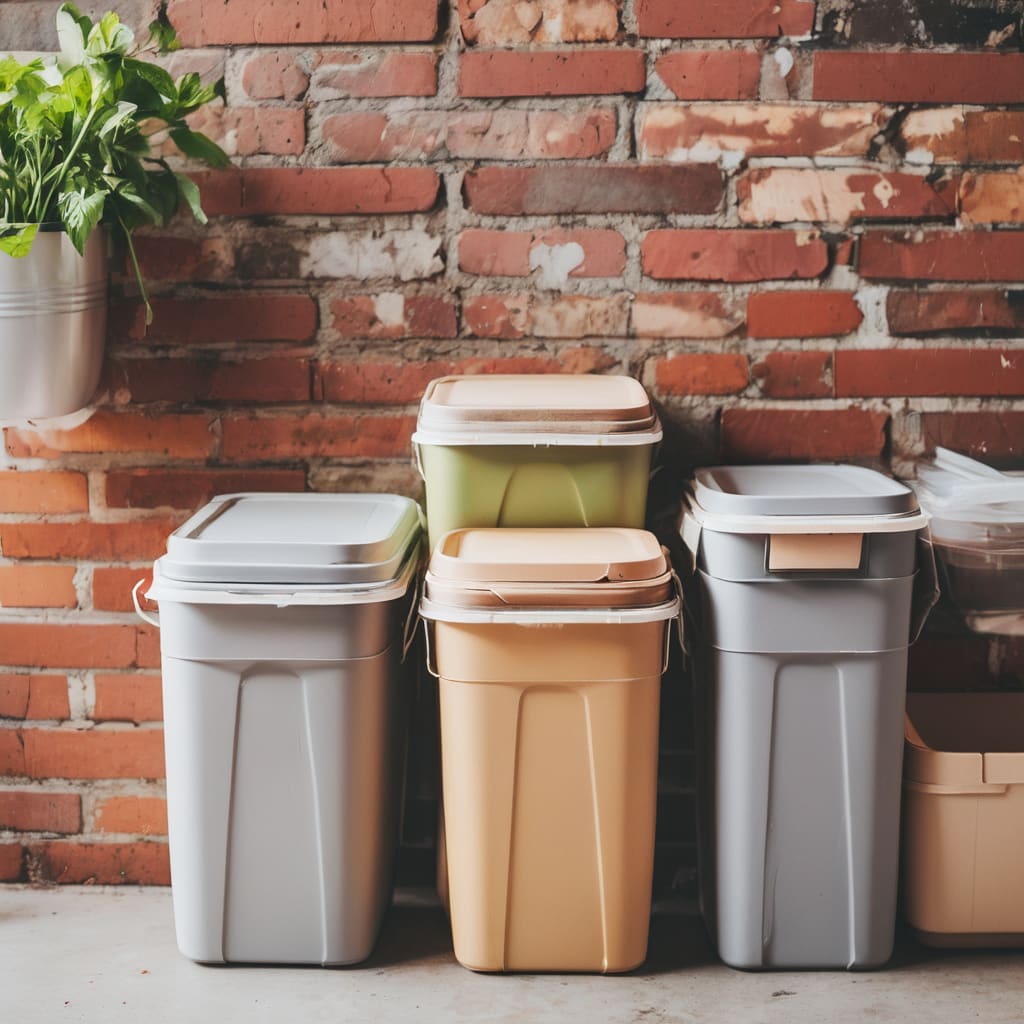How to Incorporate Zero Waste Practices into Your Daily Life
Simple Steps for a Sustainable Future

How to Incorporate Zero Waste Practices into Your Daily Life
In a world increasingly aware of environmental issues, many people are seeking ways to live more sustainably. One impactful approach is adopting a zero waste lifestyle. The concept of zero waste involves reducing the amount of waste you generate to as close to zero as possible by rethinking how you use and dispose of products. While achieving a completely zero waste lifestyle may seem daunting, incorporating small, manageable changes into your daily routine can make a significant difference. Here are practical steps to help you embrace zero waste practices in your everyday life.
1. Reduce Single-Use Plastics
One of the most effective ways to start your zero waste journey is to eliminate single-use plastics. These items, such as plastic bags, bottles, straws, and cutlery, contribute significantly to landfill waste and environmental pollution. Consider the following tips:
Reusable Bags: Always carry a reusable shopping bag. Keep one in your car, at work, and in your purse or backpack so you're never caught without it.
Reusable Bottles: Invest in a high-quality stainless steel or glass water bottle. Not only will this reduce plastic waste, but it will also save you money in the long run.
Reusable Straws: Replace plastic straws with reusable ones made from stainless steel, bamboo, or silicone.
Reusable Utensils: Carry a set of reusable utensils with you. Many come in convenient travel cases that fit easily in a bag or pocket.
2. Embrace Reusable Containers
Using reusable containers for food storage and transportation is a simple yet effective zero waste practice. Here’s how you can incorporate this into your daily life:
Lunch Boxes: Bring your lunch in a reusable container instead of using disposable plastic bags or packaging.
Glass Jars: Use glass jars for storing pantry items like grains, nuts, and spices. They are also great for leftovers and meal prep.
Beeswax Wraps: Replace plastic wrap with beeswax wraps for covering bowls and wrapping sandwiches. They are washable, reusable, and compostable.
3. Shop Mindfully
Being mindful about your shopping habits can significantly reduce waste. Here are some strategies to consider:
Bulk Buying: Purchase items in bulk to reduce packaging waste. Bring your own containers to stores that offer bulk bins for items like rice, beans, nuts, and dried fruits.
Eco-Friendly Brands: Support brands that prioritize sustainability and use minimal, recyclable, or biodegradable packaging.
Second-Hand Shopping: Opt for second-hand items whenever possible. Thrift stores, online marketplaces, and clothing swaps are great places to find gently used items.
4. Compost Organic Waste
Composting is a natural process that converts organic waste into nutrient-rich soil. By composting food scraps and yard waste, you can significantly reduce the amount of waste you send to the landfill. Here’s how to get started:
Home Composting: Set up a compost bin in your backyard or use a compost tumbler. Collect kitchen scraps like vegetable peels, coffee grounds, and eggshells, along with yard waste like leaves and grass clippings.
Community Composting: If you don’t have space for a compost bin, check if your community offers composting programs or drop-off locations for organic waste.
5. DIY Cleaning and Personal Care Products
Many commercial cleaning and personal care products come in plastic packaging and contain harmful chemicals. Making your own products can reduce waste and provide healthier alternatives. Here are a few ideas:
Cleaning Products: Make all-purpose cleaners using simple ingredients like vinegar, baking soda, and essential oils. Store them in reusable spray bottles.
Personal Care: Create your own toothpaste, deodorant, and lotion using natural ingredients. There are many recipes available online that are easy to follow.
6. Say No to Disposables
Refuse disposable items whenever possible. This includes plastic utensils, paper napkins, and single-use coffee cups. Here are some alternatives:
Utensils: Carry a set of bamboo or stainless steel utensils.
Napkins: Use cloth napkins at home and carry a small one with you for on-the-go use.
Coffee Cups: Bring your own reusable coffee cup to your favorite café. Many places even offer discounts for bringing your own cup.
7. Educate and Inspire Others
One of the most powerful aspects of the zero waste movement is its ability to inspire others. Share your journey with friends, family, and your community. Here’s how:
Social Media: Use platforms like Instagram and Facebook to share tips, tricks, and successes. You can inspire others by showing how easy and rewarding a zero waste lifestyle can be.
Workplace Initiatives: Start a zero waste initiative at your workplace. Encourage colleagues to reduce waste and implement sustainable practices.
Community Involvement: Participate in or organize local clean-up events and sustainability workshops.
Conclusion
Incorporating zero waste practices into your daily life doesn't have to be overwhelming. By making small, consistent changes, you can significantly reduce your waste footprint and contribute to a healthier planet. Remember, every effort counts, and together, we can make a substantial impact. Start today, and embrace the journey towards a more sustainable, zero waste lifestyle.
About the Creator
Enjoyed the story? Support the Creator.
Subscribe for free to receive all their stories in your feed. You could also pledge your support or give them a one-off tip, letting them know you appreciate their work.






Comments
There are no comments for this story
Be the first to respond and start the conversation.